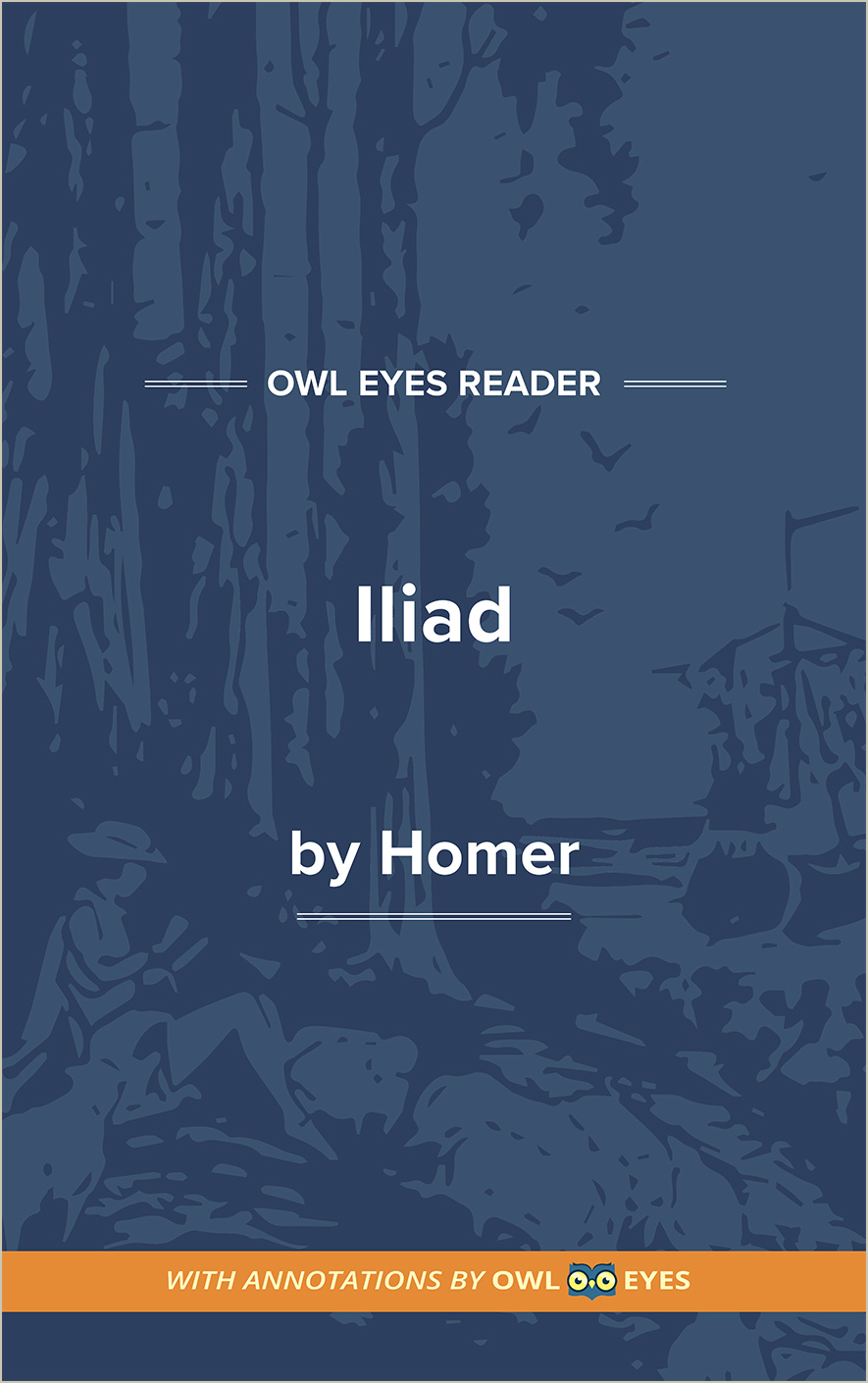Study Guide
Analysis Pages
Homer Biography
Other Literary Forms
Homer is noted only for his magnificent epic poems.
Achievements
Homer’s extant poetry consists of the Iliad, an epic of about sixteen thousand hexameter lines, and the Odyssey, a twelve-thousand-line poem in the same meter. A number of other poems attributed to Homer in late antiquity—the epigrams (twenty-six short poems contained in the Life of Homer that were attributed to Herodotus), Margites, Batrachomyomachia (battle of the frogs and mice), and the Homeric Hymns (thirty-three narrative hexameter poems in honor of various Greek divinities)—can be shown on the basis of style to postdate him. These latter poems may be either imitations or independent compositions in the general epic mode of the Iliad and the Odyssey.
Despite minor inconsistencies of detail—“even Homer nods,” explained the Roman poet Horace—both the Iliad and the Odyssey give the impression of being complete compositions, unified in theme and elaborate in structure, which combine the powers of dramatic narrative poetry with the delicacy and nuance of lyric. Their aim is nothing less than to offer to posterity the world of the heroic past. This they accomplish with such force and conviction that the imaginative representation of the Trojan War and its aftermath becomes a kind of immortality: Just as the heroes of the Iliad and the Odyssey predict that they will become the subject of song, so Homer’s song lives on. The supreme self-confidence of the genre, which exhibits heroes battling in order to gain the glory of being mentioned in epic poetry, must have been built upon the facts of social life in a highly critical, reputation-conscious culture. Homer was the ultimate representative of that culture. More than anything else, literacy may have caused its decline. It was Homer’s achievement, then, to have composed so well that his work survived the onset of a new order, in which the poet’s status as arbiter of the heroic, repository of tradition, and sole source of history, was drastically reduced. In terms of intellectual history, Homer may have been the genius who translated what was essentially “oral poetry” into a new medium: the written word.
Although his art is on a much larger scale, Homer still resembles the bards whom he portrays: Demodocus, Phemius, and Odysseus himself in the Odyssey and Achilles in book 9 of the Iliad. Like Achilles, who sings the heroic deeds of the ancestral heroes while sitting in his tent, Homer produces commemorative poetry. The naming of all the combatants in the Trojan conflict, in book 2 of the Iliad, is a relic of the sort of “catalog poetry” which must have been predominant in the traditional poetry of Greece before Homer. Comparative study has shown that the long and detailed battle scenes of the middle books in the Iliad represent a poetic genre that is paralleled by the heroic verse of many other cultures. Who fought a particular battle, which side won, and what the exploits were that brought about victory—these are the main concerns of such epics. Homer surpasses these martial epics. In the Iliad, he produces a poem which, while commemorating the fall of Troy (a historical event well known to ancient Greeks), he dwells more on the problem of human mortality and its ramifications than on national pride over victory. One senses a profound and sympathetic poetic intelligence at work as Homer portrays the deaths of Hector and Patroclus and prefigures the death of Achilles. This universal sympathy extends even to the minutiae of the incessant killings in Iliadic battle scenes. There, no one dies without remark: One warrior is described as handsome, another’s wife and children at home are mentioned, a third is an only son. It is difficult to judge Homer’s achievement because nothing of his predecessors’ poems survives, but it is clear from other epic verse, ancient and modern, that the Iliad is a masterpiece of the genre precisely because it goes beyond generic constraints and refuses to be mere...
(The entire page is 6,386 words.)
Owl Eyes subscribers get unlimited access to our expert annotations, analyses, and study guides on your favorite texts. Master the classics for less than $5/month!

